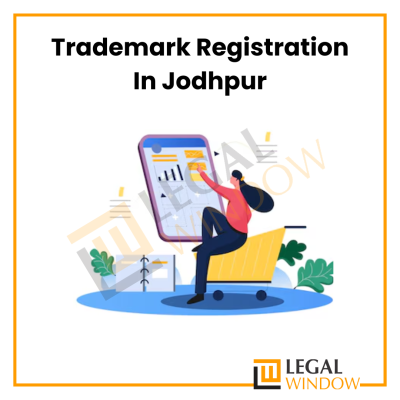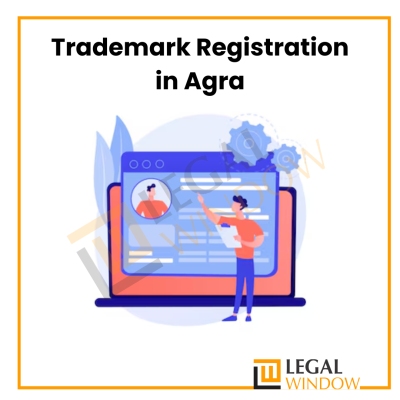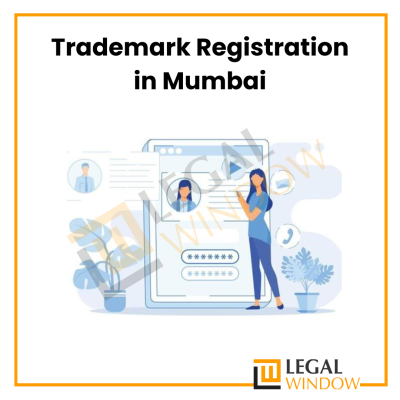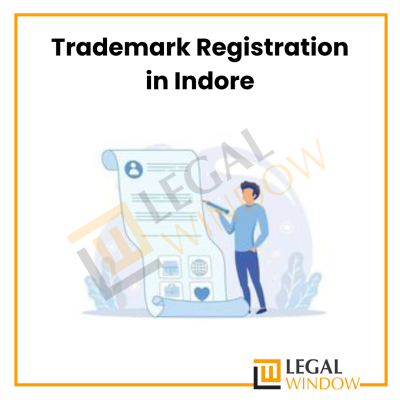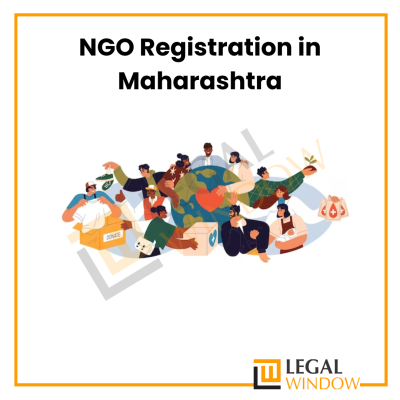Filing a Strong Reply to Trademark Objection: Section 9 Insights
- April 3, 2024
- Trademark Registration/IPR
Getting a trademark registered is an essential step in keeping the brand distinct. However, when filing a trademark application, one typically receives an examination report detailing the trademark examiner’s concerns. Gaining trademark validation and overcoming challenges depend on properly handling this report. It is mandatory to filing a reply to Trademark objection to the authorities within the given time frame. The trademark objection process easily without any hassles. As soon as you receive a trademark objection notice read it thoroughly to analyze the grounds of objection.
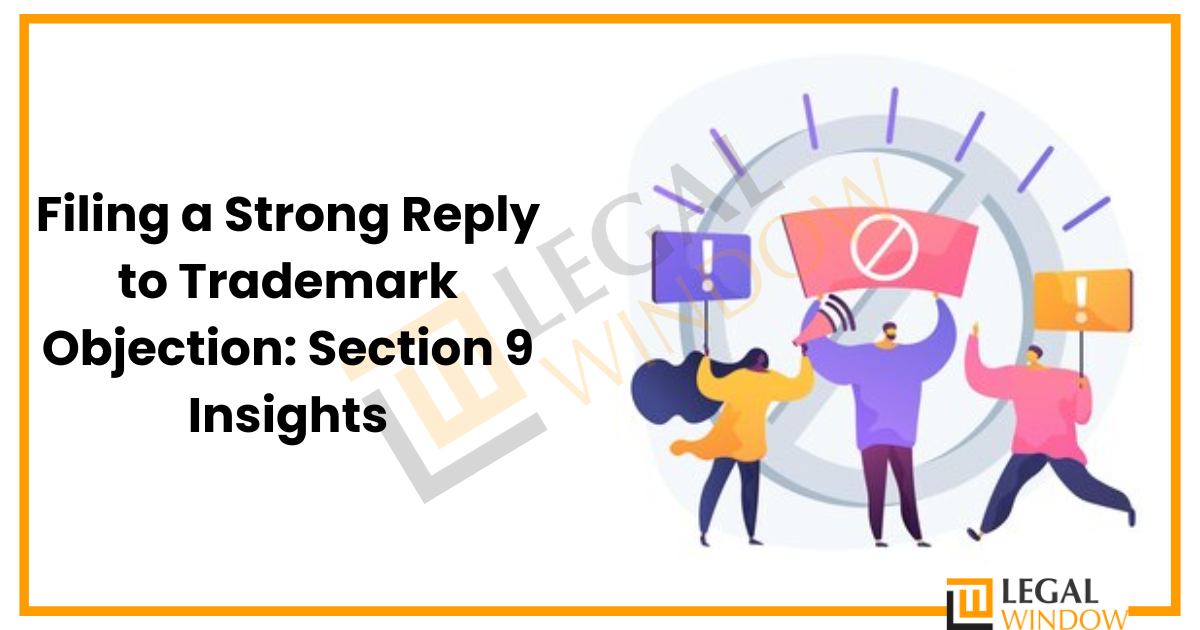
| Table of Content |
Trademark Objection
A trademark objection in India occurs when the Trademark Registry raises concerns about a trademark application, preventing its immediate registration. This typically happens because the mark has potential to
- infringe upon an existing registered trademark, meaning it’s too similar and could cause confusion among consumers, or
- violate one of the absolute grounds for refusal outlined in the Trade Marks Act, 1999. These grounds include:
- Lack of distinctiveness (generic or descriptive words)
- Deceptiveness (misleading about the product or service)
- Similarity to prohibited emblems or names
- Immorality or scandal
When an examiner identifies such issues, they issue an Examination Report detailing the reasons for objection.
The applicant then has a specific timeframe, usually one month to file a TM objection reply addressing the objections. This reply can involve:
- Providing arguments and evidence to defend the distinctiveness of the mark
- Modifying the application to differentiate the mark from existing ones
- Abandoning the application if further prosecution seems unlikely
After Filing a Reply to Trademark Objection, the Trademark Registry makes a determination regarding whether to accept the application, raise additional objections, or set up a hearing. In the end, the objection procedure aims to safeguard the public and current companies by guaranteeing that registered trademarks are actually unique and do not deceive consumers.
Reasons for Objection under Section 9 of the Trademarks Act, 1999
Generally, an objection under this clause can be made for the following basic reasons:
- Lack of Distinctiveness: It’s possible that a trademark cannot tell one person’s goods or services apart from another’s. Marks that are descriptive, general, or often used terminology in the trade fall under this category.
- Descriptive Marks: A trademark may face opposition if it accurately describes the nature, attributes, worth, origin, or any other aspect of the products or services. For instance, a company offering internet services could consider a name like “Fast Internet” to be descriptive.
- Deceptive Marks: Trademarks that contain content that could offend religious sensibilities or that are likely to mislead or confuse consumers are also open to opposition.
Possible Objections under Section 9
Section 9 of the Indian Trade Marks Act, 1999 permits objections to be raised during trademark application inspection. These objections may include:
- Descriptive Trademarks: Trademarks that are deemed too descriptive in order to differentiate products or services are subject to objections under Section 9(1)(b) of the law.
- Generic Terms (Section 9(1)(c)): Trademarks that contain terms that are frequently used to describe the goods or services are subject to objection.
- Lack of Distinctive Character (Section 9(1)(a)): Objecting to trademarks that are not unique enough, but also not descriptive enough.
- Section 9(2) Prohibited Marks: File objections if the trademark infringes upon already registered or well-known trademarks.
Also, Under Section 9 of the Indian Trade Marks Act of 1999 and the Trade Marks Rules of 2002, there are several grounds upon which the Registrar may refuse the registration of a trademark. Some of these grounds include:
- Hurt Religious Sentiments: If a trademark is likely to offend the religious sensitivities of any class or segment of Indian people, the Registrar may refuse to register it. This clause is intended to limit the use of trademarks that may be regarded disrespectful or offensive to religious beliefs.
- Offensive or Obscene Words or Images: Trademarks containing offensive or obscene words or images may be refused registration. This is to maintain public decency and prevent the use of trademarks that could be considered morally objectionable.
- Geographical Names: The use of geographical names as trademarks may be refused if it is likely to deceive or cause confusion regarding the origin of goods or services. This is to prevent the appropriation of geographical names that are commonly associated with certain products or services.
- International Proprietary Names: Trademarks that consist of international proprietary names, particularly those related to pharmaceuticals and other regulated products, may be refused registration to avoid confusion or misleading consumers.
- Other Grounds: Additionally, there are various other grounds described in the Act and Rules that may lead to the refusal of trademark registration. These grounds may include non-distinctiveness, descriptive nature, generalness, similarity to well-known marks, and others.
Striking and Serious Similarities with the previously Registered or currently Pending Trademarks
Section 11 of the Trademarks Act aims to prevent confusion among consumers and protect the rights of trademark owners.
When assessing whether a trademark is identical or resembles an existing one, the Registrar considers various factors such as the visual, phonetic, and conceptual similarities between the trademarks, as well as the nature of the goods or services for which they are used. Here are some key points to consider regarding Section 11 of Trademarks Act:
- Identical or Resembling Trademarks: The Registrar will refuse the registration of a trademark if it is identical or closely resembles an existing registered trademark or a trademark for which an application is already pending. This is to avoid confusion among consumers regarding the source of goods or services.
- Assessment Factors: The Registrar considers various factors such as visual similarity (how the trademarks look), phonetic similarity (how they sound), and conceptual similarity (the underlying idea or meaning) between the trademarks. Additionally, the nature of the goods or services associated with the trademarks is taken into account.
- Confusion and Deception: The primary concern is to prevent confusion or deception among consumers. If the similarity between trademarks is likely to cause confusion regarding the origin of goods or services, the Registrar may refuse the registration of the trademark.
- Legal Remedies: Trademark owners can oppose the registration of a trademark if they believe it infringes upon their existing rights. They can also take legal action against infringing trademarks to protect their intellectual property rights.
How to reply to an objection?
Once Filing a Reply to Trademark Objection is done then the applicant will be given due notice about the objection as well as the grounds of objection.
- The first thing one must do is file a reply to the objection.
- This must be done within one month from the date of receipt of the notice of objection
- Failure to file an objection within one month will change the status of the application to Abandoned.
When the reply is filed, the Registrar lists the hearing, if his ruling goes in favour of the plaintiff in opposition, the trademark is listed to be registered. If it goes against the plaintiff, the application for registration is refused. At this point, the plaintiff can file an appeal before Intellectual Property Appellate Board (IPAB):
- The appeal must be filed within 3 months from the date of the order passed by the Registrar.
- If an appeal is filed after the period of 3 months, the applicant must state the reason for the delay by filing a petition for condonation of delay with a fine of Rs 2,500. If the reason is accepted by the IPAB the appeal will be posted for hearing.
- The filing must be done according to the rules prescribed in TradeMarks (Applications, Appeals and Fees to the Intellectual Property Appellate Board) Rules (hereinafter referred to as Trademark rules).
- All of the documentation must be verified by the applicant
- Every application must then be endorsed by the Deputy Registrar on the date of on which the application is presented
- If the Deputy Registrar finds any defects with the application he will give notice of the same
- The defects must be fixed and the application must be resubmitted within 2 months by the applicant.
- Failing to do so, the Deputy Registrar will deem the application to be Abandoned
- If the application is found to be in ordder, the Deputy Registrar will register the case and will allot it a serial number.
Once the case is registered the IPAB will hear the case. The place of the hearing will be decided upon the jurisdiction under which the case falls according to rule 2(m). A date will be given for the hearing of the case. The hearing will follow as such.
- The IPAB will decide on the case based on the submissions made by the two parties.
- If one party fails to present themselves on the day of the hearing, the IPAB can:
- Rule on the merits of the case
- Give an order ex parte (in the absence of one party)
- Dismiss the case
Conclusion
Successful Filing a Reply to Trademark Objection & validation necessitates a forceful response to a trademark examination report. By analyzing the objections, resolving each issue independently, and abiding by pertinent legal provisions, this part of the process can be completed. Obtaining expert legal counsel and providing a comprehensive response will significantly raise the likelihood of obtaining trademark registration. A thoughtful answer establishes the foundation for future financial success and shows commitment to preserving the brand’s identity.
CS Urvashi Jain is an associate member of the Institute of Company Secretaries of India. Her expertise, inter-alia, is in regulatory approvals, licenses, registrations for any organization set up in India. She posse’s good exposure to compliance management system, legal due diligence, drafting and vetting of various legal agreements. She has good command in drafting manuals, blogs, guides, interpretations and providing opinions on the different core areas of companies act, intellectual properties and taxation.
Categories
- Agreement Drafting (23)
- Annual Compliance (12)
- Change in Business (37)
- Company Law (149)
- Compliance (90)
- Digital Banking (3)
- Drug License (3)
- FEMA (17)
- Finance Company (42)
- Foreign Taxation (9)
- FSSAI License/Registration (14)
- GST (122)
- Hallmark Registration (1)
- Income Tax (207)
- Latest News (34)
- Miscellaneous (169)
- NBFC Registration (8)
- NGO (18)
- SEBI Registration (6)
- Section 8 Company (10)
- Start and manage a business (26)
- Startup/ Registration (133)
- Trademark Registration/IPR (48)
Recent Posts
- NGO Registration in West Bengal July 29, 2024
- Trademark Registration In Jodhpur July 22, 2024
- Trademark Registration in Agra July 15, 2024
About us
LegalWindow.in is a professional technology driven platform of multidisciplined experts like CA/CS/Lawyers spanning with an aim to provide concrete solution to individuals, start-ups and other business organisation by maximising their growth at an affordable cost.


